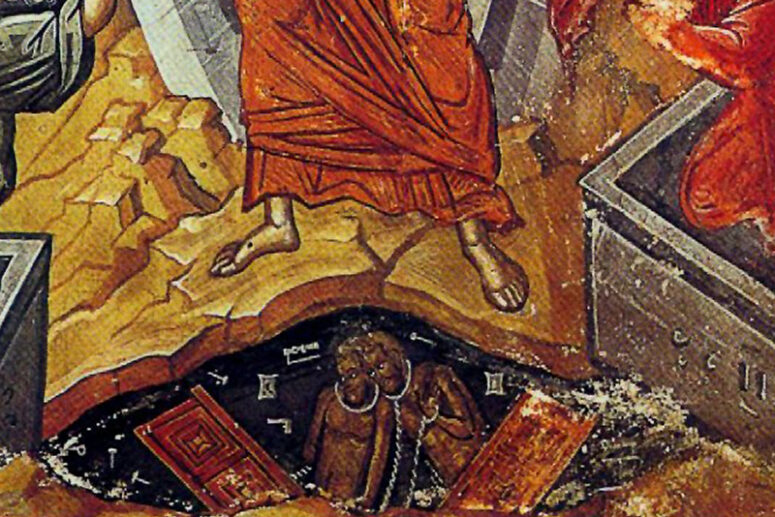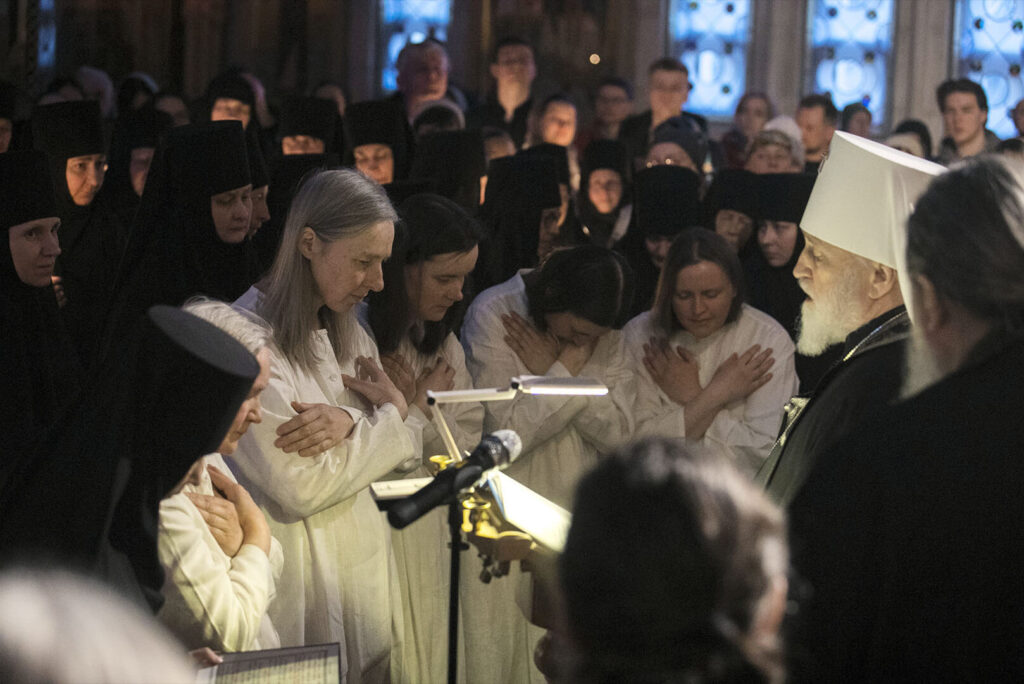
Q: I recently heard a priest who said that hades no longer exists, because in our hymns, we say that Christ destroyed hades by his resurrection. Is that true?
A: It is true that in the Paschal Matins, we sing: “We celebrate the death of death, the destruction of hades, the beginning of another life eternal, and leaping for joy, we hymn the Cause, the only blessed and most glorious God of our fathers” (Ode 7), but it is also true that we have hymns that say things like “… by Thy death, Thou hast destroyed the devil…” (Bright Wednesday, Praises), and yet we know that the devil has not ceased to exist as a result of the resurrection, because we are told by St. Peter “Be sober, be vigilant; because your adversary the devil, as a roaring lion, walketh about, seeking whom he may devour” (1 Peter 5:8). Hades and the devil have been destroyed in that their power over mankind has been broken by the Cross and Resurrection of Christ. This does not mean that they have ceased to exist. Today is the 69th anniversary of D-Day, and we could say that Hitler’s realm was destroyed on D-Day, but it wasn’t ultimately destroyed until VE-Day (Victory in Europe Day).
Another problem we have in English is that the word “hell” is used to translate the Greek word “Hades” as well as “Gehenna”. Hades in the New Testament means what Sheol in the Old Testament meant, which is “the abode of the dead.” “Gehenna” refers to the lake of fire, or the final place where the wicked are condemned — which is what most people have in mind when they think of “hell.” Even before the resurrection, the wicked were receiving a foretaste of punishment, and the righteous we receiving a foretaste of blessedness. But prior to the Resurrection of Christ, even the souls of the saints of the Old Testament abode in Hades. At the resurrection, the righteous were set at liberty, and taken into paradise, but this is still not the final state of blessedness that will only be accomplished after the general resurrection. The wicked in Hades likewise will only experience the fullness of their punishment, after they are resurrected unto damnation, which is called the “second death”. At present, there are in Hades the souls of those who have died in a state of repentance, but who have not brought forth the fruits of repentance, and are not yet ready to enter into the presence of God. Many of those souls will enter in heaven before the final judgment, through the prayers of the Church, but some will await the final judgment there, and yet be saved. We do not believe that these souls suffer for their sins, but we do believe that our prayers are of some benefit to them. In the Kneeling Vespers of Pentecost, we pray: “[God] Who also on this most perfect and saving feast hast deigned to receive propitiatory prayers for those who are kept in hades, giving us great hope that through Thee release and consolation may be sent down to those held there in bondage and vileness.” We even believe that our prayers are of some benefit to those who will not ultimately enter into heaven, though we cannot speak of these things with precision, because these things have not been fully revealed to us.




